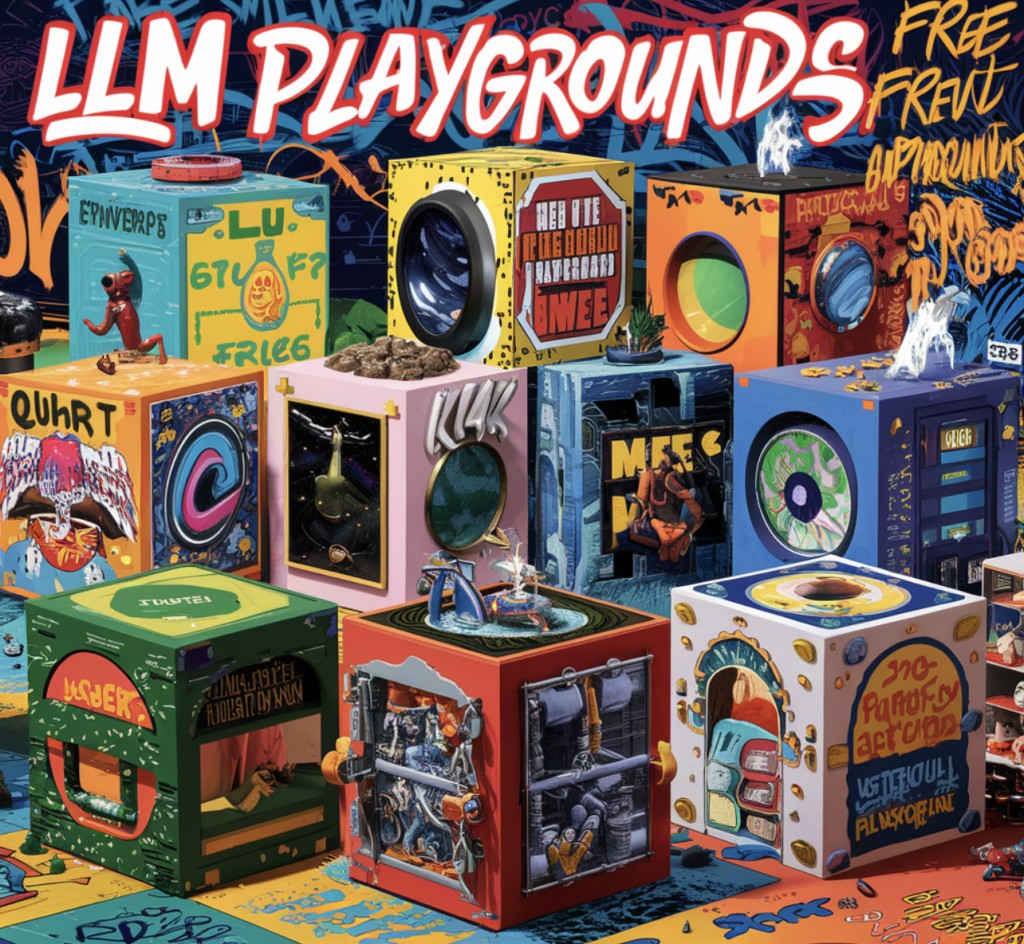Free LLM Playgrounds and Their Comparative Analysis
As the landscape of AI technology advances, the proliferation of free platforms to test large language models (LLMs) online has greatly increased. These ‘playgrounds’ offer a valuable resource for developers, researchers, and enthusiasts to experiment with different models without requiring extensive setup or investment. Let’s explore a comparative analysis of various free LLM playgrounds based on their features, performance, and accessibility, helping you to decide which platform might best suit your needs.
Overview of LLM Playgrounds
LLMs have become a cornerstone of modern AI applications, offering capabilities ranging from text generation to sophisticated problem-solving. However, LLMs’ complexity and resource requirements often make them inaccessible for individual researchers or small teams. This barrier is mitigated by LLM playgrounds, online platforms that allow users to test various models freely. These platforms provide an environment where developers, data scientists, and tech enthusiasts can interact with different LLMs, evaluate their performance, and understand their potential applications without any financial cost.
Groq LM Playground
Groq LM Playground stands out for its exceptionally fast performance. This makes it excellent for those who require quick feedback and rapid prototyping capabilities. This platform is particularly valuable for developers needing to test changes iteratively and efficiently.
Speed: Groq is distinguished by its exceptionally fast processing times, which benefits users who require quick feedback during model testing.
Primary Use: Ideal for users who need to prototype or iterate on AI-driven projects rapidly.
Vercel AI
Vercel AI features a unique model comparison tool that allows users to evaluate two models side-by-side. This tool benefits researchers and developers who assess and analyze AI models’ relative strengths and weaknesses in real time.
Features: Unique for its model comparison tool, Vercel AI allows users to compare the outputs and performance metrics of two models directly.
Primary Use: Best for users looking to make informed decisions between multiple model options.
Nvidia
Nvidia offers a more diverse range of AI models, including LLMs, multi-modal models, and image generators. This platform is ideal for exploring various AI technologies, particularly those that extend beyond text-based applications.
Model Diversity: Offers a broader range of AI models, including LLMs, multi-modal models, and image generators, though it’s restricted to the most popular models.
Primary Use: Suitable for users interested in exploring AI beyond text-based models.
Together.AI
Together.AI provides the most comprehensive selection of models available for testing, making it a top choice for users who want to experiment with a wide array of AI capabilities. Its extensive offerings support a broad spectrum of AI research and development activities.
Comprehensive Access: Provides the most extensive array of testing models, making it a top choice for users who wish to explore various AI technologies.
Primary Use: Excellent for comprehensive experimentation across different model types.
Additional Platforms
1. Perplexity Lab
Perplexity Lab focuses on user-friendly interactions with LLMs, offering a straightforward and accessible platform. This playground is especially suited to newcomers in the field of AI, providing an easy entry point for experimenting with language models.
Features: Focuses on providing a straightforward, user-friendly interface for interacting with LLMs.
2. HuggingChat
Part of the larger Hugging Face ecosystem, HuggingChat allows users to test and interact with transformer models in a conversational format. It is an excellent resource for developing or refining chatbots and other conversational AI applications.
Features: Part of the Hugging Face ecosystem, it provides an interactive environment for testing the chat capabilities of transformer models.
3. FireWorks AI
FireWorks AI offers a selection of proprietary models designed for specific industries and applications. This platform best suits businesses and developers needing customized AI solutions tailored to particular industry needs.
Features: Offers a unique set of proprietary models tailored for specific industries and tasks.
4. Quora Poe
Quora Poe integrates Quora’s extensive knowledge base with the capabilities of large language models, focusing on knowledge retrieval and conversation. This playground is perfect for users who need a sophisticated tool for information extraction and interaction based on vast user-generated content.
Features: Specializes in knowledge retrieval and conversation, integrating Quora’s vast knowledge base with LLM capabilities.
Comparative Table
Conclusion
Free LLM playgrounds are an invaluable resource for people interested in exploring the capabilities of artificial intelligence without incurring significant costs. By providing hands-on experience with various models, these platforms facilitate education and experimentation and help democratize access to cutting-edge technologies. Whether you are a developer seeking to test algorithmic changes or a researcher aiming to compare model performances, the diverse range of available LLM playgrounds ensures that there is likely a platform that fits your needs.
Sources
https://console.groq.com/playground
https://api.together.xyz/playground/
https://poe.com/
The post Free LLM Playgrounds and Their Comparative Analysis appeared first on MarkTechPost.
Source: Read MoreÂ



